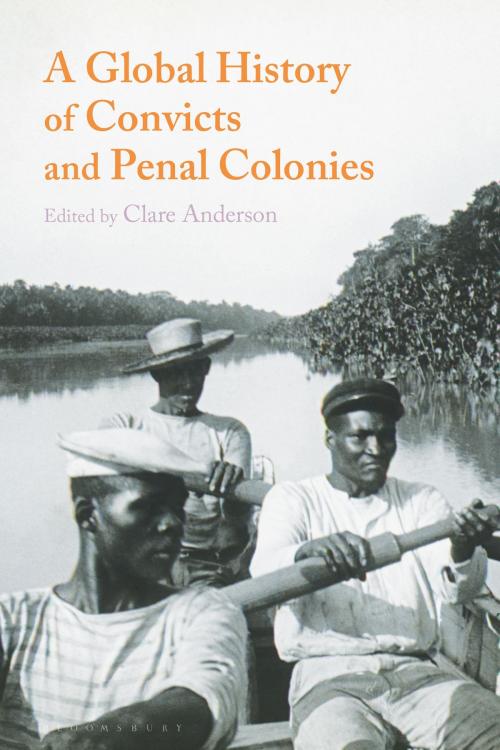A Global History of Convicts and Penal Colonies
Nonfiction, Reference & Language, Law, Legal History, History, World History| Author: | ISBN: | 9781350000698 | |
| Publisher: | Bloomsbury Publishing | Publication: | May 17, 2018 |
| Imprint: | Bloomsbury Academic | Language: | English |
| Author: | |
| ISBN: | 9781350000698 |
| Publisher: | Bloomsbury Publishing |
| Publication: | May 17, 2018 |
| Imprint: | Bloomsbury Academic |
| Language: | English |
This book is open access and available on www.bloomsburycollections.com. It is funded by the University of Leicester.
Between 1415, when the Portuguese first used convicts for colonization purposes in the North African enclave of Ceuta, to the 1960s and the dissolution of Stalin's gulags, global powers including the Spanish, Dutch, Portuguese, British, Russians, Chinese and Japanese transported millions of convicts to forts, penal settlements and penal colonies all over the world.
A Global History of Convicts and Penal Colonies builds on specific regional archives and literatures to write the first global history of penal transportation. The essays explore the idea of penal transportation as an engine of global change, in which political repression and forced labour combined to produce long-term impacts on economy, society and identity. They investigate the varied and interconnected routes convicts took to penal sites across the world, and the relationship of these convict flows to other forms of punishment, unfree labour, military service and indigenous incarceration. They also explore the lived worlds of convicts, including work, culture, religion and intimacy, and convict experience and agency.
This book is open access and available on www.bloomsburycollections.com. It is funded by the University of Leicester.
Between 1415, when the Portuguese first used convicts for colonization purposes in the North African enclave of Ceuta, to the 1960s and the dissolution of Stalin's gulags, global powers including the Spanish, Dutch, Portuguese, British, Russians, Chinese and Japanese transported millions of convicts to forts, penal settlements and penal colonies all over the world.
A Global History of Convicts and Penal Colonies builds on specific regional archives and literatures to write the first global history of penal transportation. The essays explore the idea of penal transportation as an engine of global change, in which political repression and forced labour combined to produce long-term impacts on economy, society and identity. They investigate the varied and interconnected routes convicts took to penal sites across the world, and the relationship of these convict flows to other forms of punishment, unfree labour, military service and indigenous incarceration. They also explore the lived worlds of convicts, including work, culture, religion and intimacy, and convict experience and agency.















